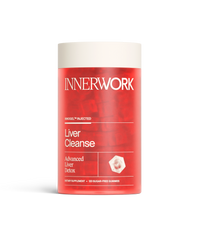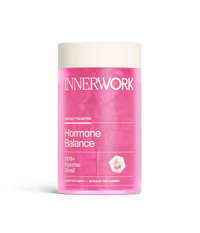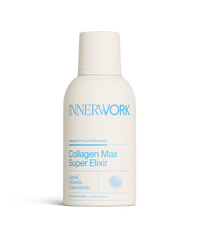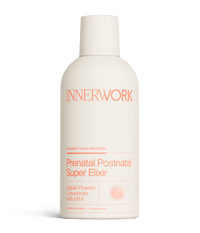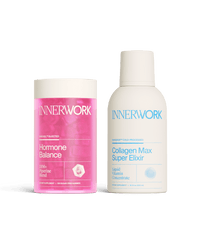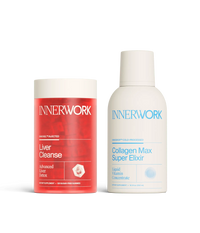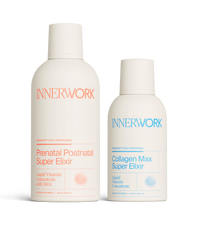Bovine collagen, derived from cows, primarily consists of Type I and Type III collagen, while marine collagen, sourced from fish, is predominantly Type I. These different types play distinct roles in the body and have unique amino acid profiles and molecular structures. Bovine collagen is rich in glycine and proline, crucial for collagen synthesis. Marine collagen contains higher levels of hydroxyproline, essential for collagen stability and particularly important for skin health. Combining these sources creates a more comprehensive amino acid profile, potentially enhancing overall collagen production and function.
The absorption dynamics of these collagen types differ due to their molecular sizes. Marine collagen peptides are typically smaller, allowing for quicker absorption and providing a rapid influx of collagen-building blocks. Bovine collagen, with slightly larger peptides, might offer a more sustained release. This combination creates a dual-action approach: quick absorption coupled with prolonged availability.
Beyond collagen itself, these sources offer complementary components. Bovine collagen often contains chondroitin sulfate, while marine collagen frequently comes with glucosamine. These glycosaminoglycans (GAGs) play crucial roles in joint health and skin hydration. The combination provides a broader spectrum of these components, potentially enhancing benefits beyond what either source could achieve alone.
The bovine-marine combo may also offer enhanced anti-inflammatory and antioxidant effects. Bovine collagen has demonstrated anti-inflammatory properties, particularly beneficial for gut health. Marine collagen has shown potent antioxidant effects. Together, they may address inflammation from multiple angles.
For bone health, this combination might provide a more comprehensive approach. Bovine collagen supports the organic matrix of bones, while marine collagen has shown promise in stimulating osteoblast activity. This dual approach addresses both the structural and cellular aspects of bone formation.
The combination also offers potential benefits for muscle recovery. Bovine collagen's glycine content plays a role in creatine synthesis, essential for muscle energy and recovery. Marine collagen's rapid absorption can quickly deliver amino acids to muscle tissues. This dual-action approach might enhance both the speed and quality of muscle recovery post-exercise.
From a sustainability perspective, combining bovine and marine collagen supports diverse practices across different industries. Marine collagen often utilizes fish by-products, promoting a nose-to-tail philosophy in the fishing industry. Responsibly sourced bovine collagen can be part of sustainable farming practices.
Innerwork's Collagen Max Super Elixir exemplifies this approach by combining hydrolyzed bovine and marine collagen peptides. Free from sugar and artificial sweeteners, this formulation supports joint, skin, hair, nail, and gut health without the negative impacts associated with artificial additives. By including both types of collagen, Innerwork provides a comprehensive supplement that meets the needs of individuals seeking holistic health benefits in a single, premium formula.
The combination of bovine and marine collagen peptides offers a synergistic approach to collagen supplementation. With improved absorption, a comprehensive amino acid profile, and targeted benefits for various aspects of health, this blend presents a well-rounded solution for those looking to maximize the effects of collagen supplementation. Whether the goal is anti-aging, improved mobility, or better gut health, combining bovine and marine collagen provides a versatile approach to enhancing overall wellness.
References:
[1] León-López, A., et al. (2019). Hydrolyzed Collagen—Sources and Applications. Molecules, 24(22), 4031.
[2] Silva, T. H., et al. (2014). Marine origin collagens and its potential applications. Marine Drugs, 12(12), 5881-5901.
[3] Yamada, S., et al. (2014). Effects of fish collagen peptides on collagen post-translational modifications and mineralization in an osteoblastic cell culture system. Dental Materials Journal, 33(1), 88-95.
[4] Lodish, H., et al. (2000). Molecular Cell Biology. 4th edition. New York: W. H. Freeman; Section 22.5, Proteoglycans and Glycosaminoglycans.
[5] Chen, Q., et al. (2017). Collagen peptides ameliorate intestinal epithelial barrier dysfunction in immunostimulatory Caco-2 cell monolayers via enhancing tight junctions. Food & Function, 8(3), 1144-1151.
[6] Hu, Z., et al. (2019). Marine Collagen Peptides from the Skin of Nile Tilapia (Oreochromis niloticus): Characterization and Wound Healing Evaluation. Marine Drugs, 17(1), 20.
[7] Guillerminet, F., et al. (2010). Hydrolyzed collagen improves bone metabolism and biomechanical parameters in ovariectomized mice: An in vitro and in vivo study. Bone, 46(3), 827-834.
[8] Koutroubakis, I. E., et al. (2003). Serum laminin and collagen IV in inflammatory bowel disease. Journal of Clinical Pathology, 56(11), 817-820.
[9] Proksch, E., et al. (2014). Oral supplementation of specific collagen peptides has beneficial effects on human skin physiology: a double-blind, placebo-controlled study. Skin Pharmacology and Physiology, 27(1), 47-55.
[10] Meléndez-Hevia, E., et al. (2009). A weak link in metabolism: The metabolic capacity for glycine biosynthesis does not satisfy the need for collagen synthesis. Journal of Biosciences, 34(6), 853-872.
[11] van Vliet, S., et al. (2015). The skeletal muscle anabolic response to plant- versus animal-based protein consumption. The Journal of Nutrition, 145(9), 1981-1991.

